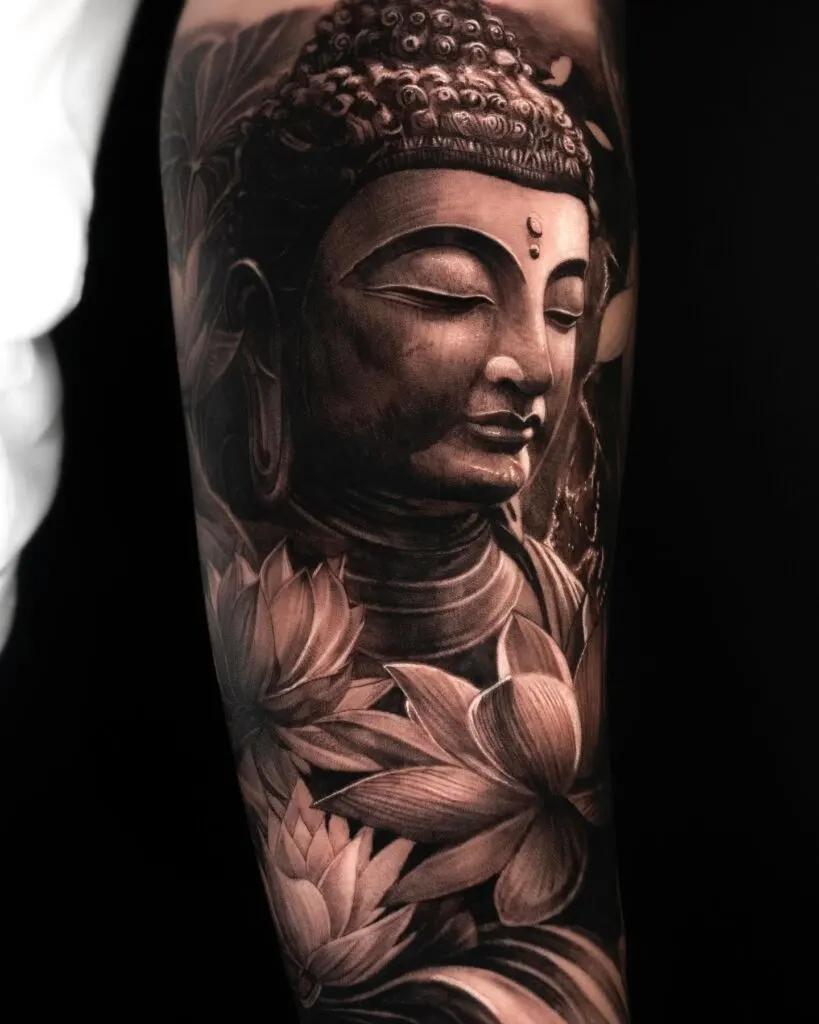1. Dragon (龍, Ryū)
Dragons in Yakuza tattoos represent strength, wisdom, and protection. They are considered protectors in Japanese culture and are believed to bring good fortune to those who wear their image. The dragon is often depicted with bold, flowing movements, symbolizing its power and grace. For the Yakuza, a dragon tattoo signifies the wearer’s strength and ability to protect themselves and others. It is also a sign of ambition, as dragons are seen as ascending creatures, always striving to rise higher. The dragon can appear alongside other elements, like water or clouds, further emphasizing its mastery over nature and its wisdom in navigating life’s challenges. For many Yakuza, this tattoo serves as both a personal guardian and a representation of their inner strength.
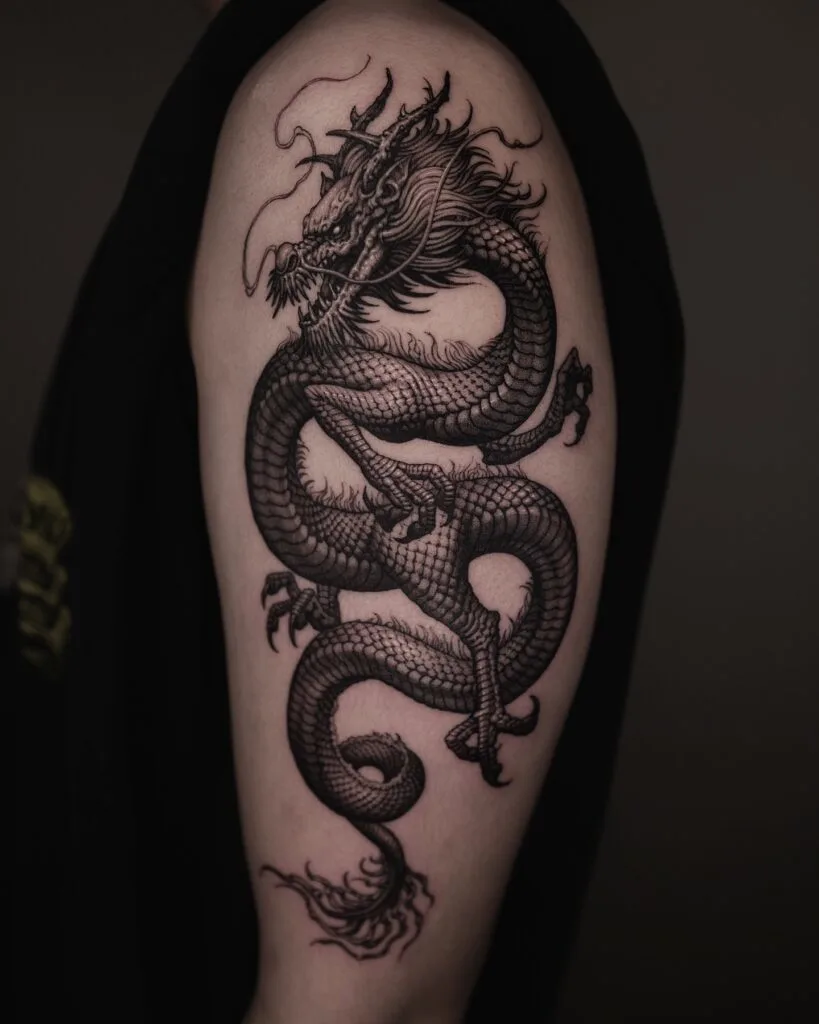
2. Koi Fish (鯉, Koi)
The koi fish symbolizes perseverance, determination, and the ability to overcome adversity. In Japanese folklore, koi fish are known for their bravery in swimming upstream, often against strong currents, which makes them a popular choice among Yakuza members who value resilience. The legend of the koi tells of a fish that swims upstream to transform into a dragon, representing personal transformation and success despite hardships. For the Yakuza, a koi tattoo signifies their willingness to face challenges head-on and emerge victorious. The vibrant, often colorful koi is also associated with luck, wealth, and the idea of never giving up, making it a strong personal symbol for those navigating a life filled with risk and uncertainty.

3. Tiger (虎, Tora)
A tiger tattoo in Yakuza culture represents strength, courage, and protection from evil spirits. It is often depicted in fierce, dynamic poses, symbolizing power, dominance, and the ability to overcome adversity. Tigers are feared and revered in Japanese folklore, often seen as solitary hunters that navigate through life with strength and independence. For a Yakuza member, the tiger embodies their ability to survive in a dangerous world, maintaining their personal code of honor while facing external threats. The tiger’s fierce expression and aggressive posture in tattoos emphasize its role as a guardian, warding off evil and protecting the wearer from misfortune, all while projecting an image of raw, untamed power.
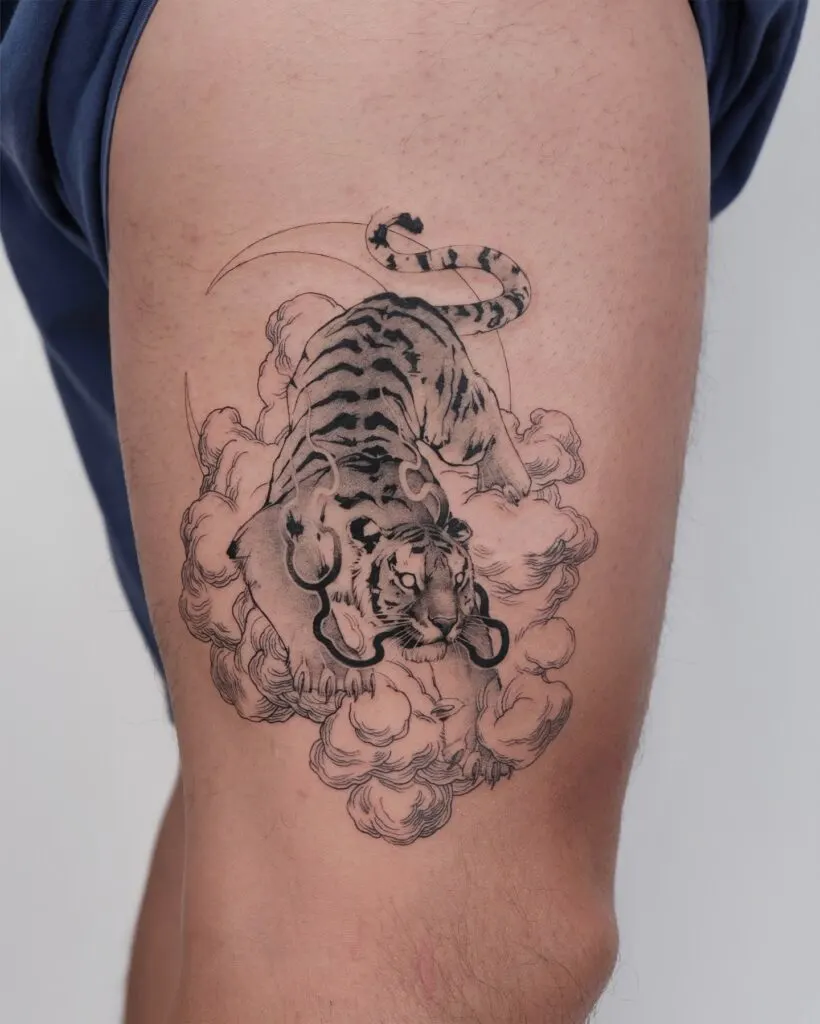
4. Samurai (侍, Bushi)
The samurai tattoo is a powerful symbol of honor, loyalty, and discipline. In Yakuza culture, the samurai represents the warrior’s code, known as bushido, which emphasizes integrity, respect, and self-sacrifice. This tattoo is chosen by those who want to show their dedication to a strict code of ethics, even in the violent world of organized crime. Samurai tattoos often depict warriors in full armor, ready for battle, symbolizing the Yakuza’s commitment to defending their personal honor and the group they serve. The samurai’s sword, the katana, is a key feature in these tattoos, representing the sharpness of mind and readiness to act when necessary. It reflects the wearer’s adherence to a code of discipline and loyalty, essential values in the Yakuza.
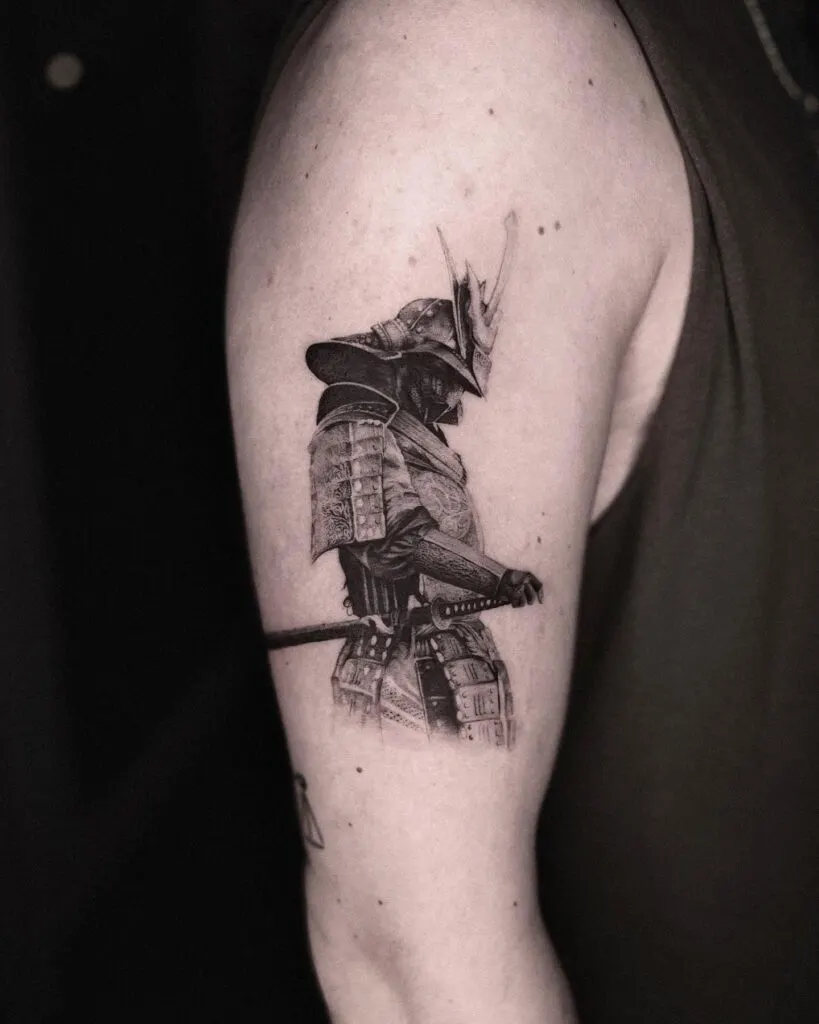
5. Cherry Blossoms (桜, Sakura)
Cherry blossoms in Yakuza tattoos symbolize the fleeting nature of life, beauty, and the acceptance of mortality. In Japanese culture, the cherry blossom, or sakura, is celebrated for its short-lived bloom, reminding people of the impermanence of life. For the Yakuza, this tattoo serves as a reminder that life is transient and that one must live fully, even in the face of danger. It’s also a representation of beauty in hardship, as the blossoms fall gracefully even under the harshest conditions. Cherry blossoms are often combined with other motifs like samurai or koi fish, symbolizing the balance between beauty, strength, and the fragility of existence, which resonates deeply with the Yakuza’s outlook on life.
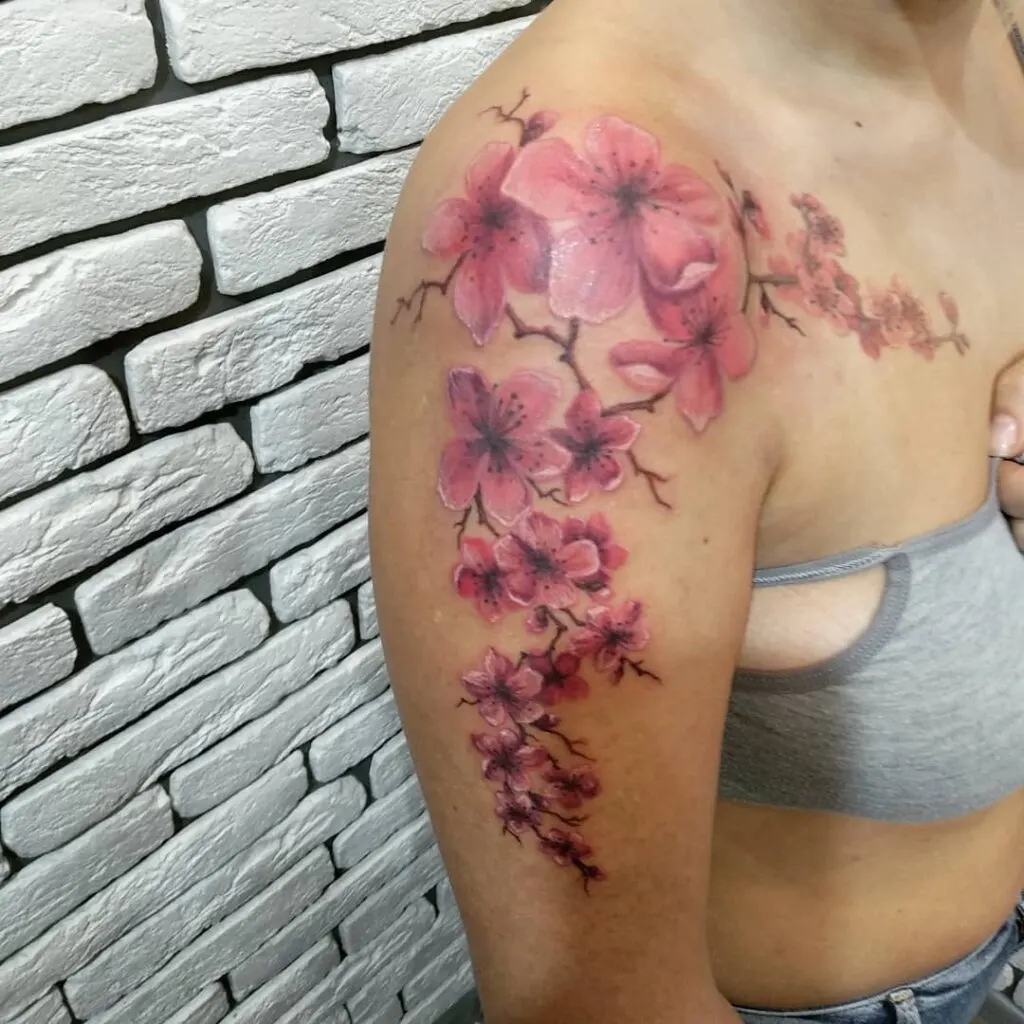
6. Hannya Mask (般若, Hannya)
The Hannya mask tattoo represents jealousy, anger, and vengeance. It originates from traditional Japanese Noh theater, where the mask depicts a female demon consumed by rage and bitterness. In Yakuza culture, the Hannya tattoo embodies these intense emotions, showing the wearer’s darker side or struggles with internal turmoil. However, it also represents protection from evil spirits, as the mask is believed to ward off negative influences. For Yakuza members, the Hannya can symbolize the complexities of their lives—balancing personal pain with outward strength and revenge. Its menacing, sharp features are often rendered in bold lines and deep colors, signifying the intensity of the emotions it represents and the strength required to overcome them.
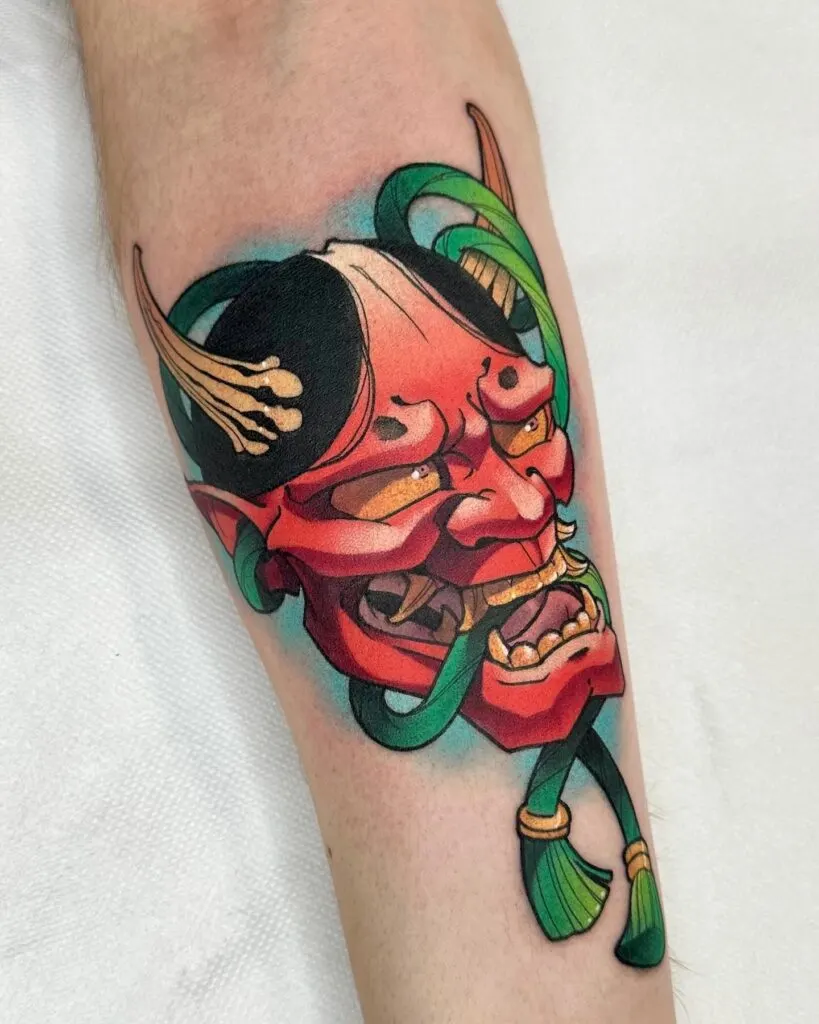
7. Phoenix (鳳凰, Fushichō)
The phoenix is a symbol of rebirth, transformation, and triumph over adversity. In Yakuza tattoos, the phoenix represents the wearer’s ability to rise from difficult situations, much like the mythical bird that regenerates from its ashes. This tattoo is often chosen by those who have faced significant challenges and emerged stronger on the other side. The phoenix’s association with fire and renewal makes it a powerful symbol of resilience, reflecting the Yakuza’s belief in personal strength and the ability to reinvent oneself. The vibrant, often fiery colors used in phoenix tattoos emphasize its connection to life’s transformational power and the continuous cycle of growth, renewal, and overcoming obstacles.
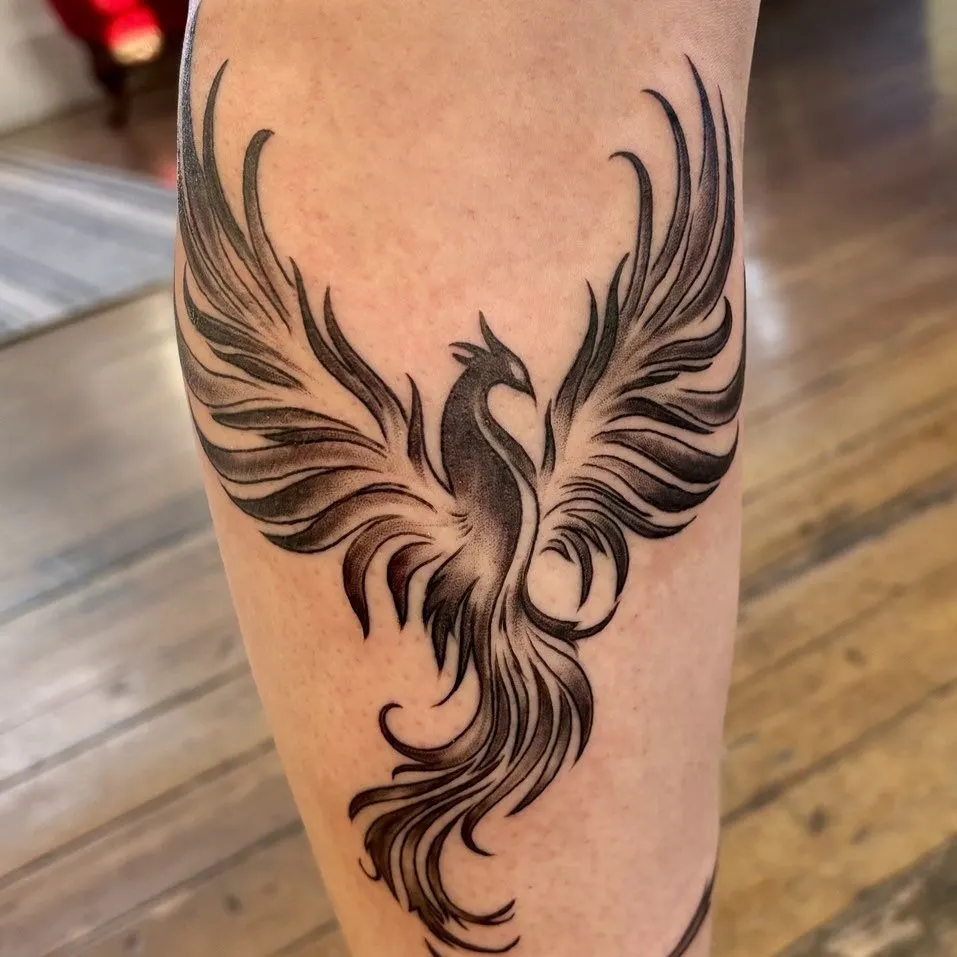
8. Snake (蛇, Hebi)
The snake in Yakuza tattoos symbolizes wisdom, protection, and the cycle of life. In Japanese culture, snakes are often revered for their ability to shed their skin, representing rebirth and renewal. For the Yakuza, a snake tattoo can indicate the wearer’s adaptability, intelligence, and ability to survive in a dangerous world. Snakes are also believed to offer protection from illness and bad luck, making them popular choices for those who live a risky lifestyle. The snake’s ability to strike at the right moment also symbolizes cunning and patience, qualities that are highly valued within the Yakuza organization. Often paired with other symbols like skulls or flowers, the snake adds depth to the tattoo’s overall meaning.
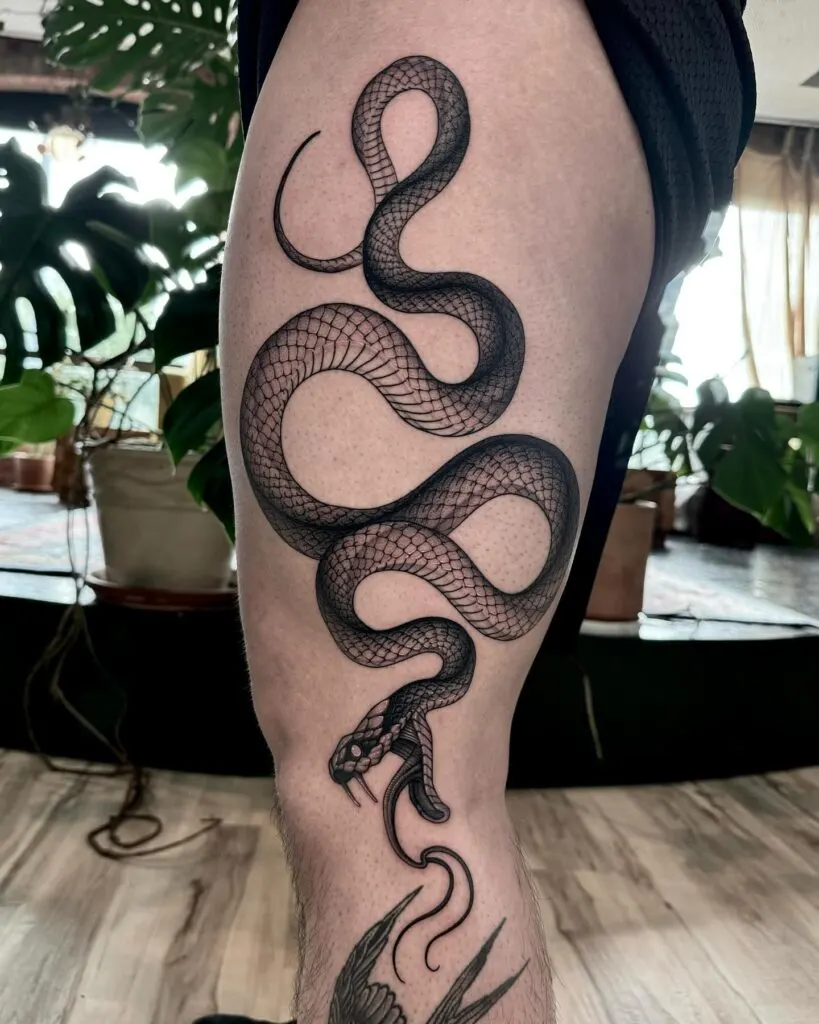
9. Lotus Flower (蓮, Hasu)
The lotus flower symbolizes purity, spiritual awakening, and triumph over adversity. In Japanese culture, the lotus is admired for its ability to grow beautifully despite emerging from muddy waters. This quality makes it a potent symbol in Yakuza tattoos, representing the wearer’s resilience and the ability to rise above difficult circumstances. The lotus is often depicted in vibrant colors, contrasting against darker elements like snakes or demons to emphasize purity and enlightenment in the face of hardship. For the Yakuza, a lotus flower tattoo can symbolize personal growth, moral clarity, and the pursuit of peace amidst a life of chaos. It serves as a reminder of the balance between beauty and struggle in their lifestyle.
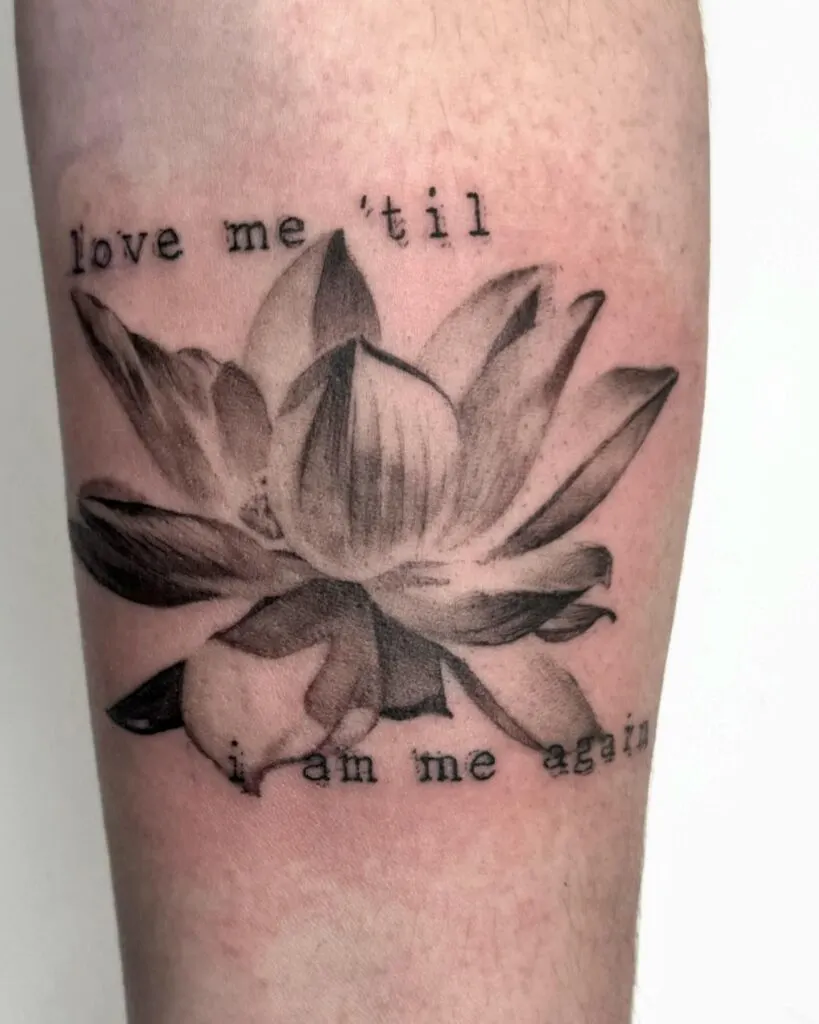
10. Peony (牡丹, Botan)
The peony, known as the “King of Flowers,” represents wealth, prosperity, and bravery in Yakuza culture. It is a highly regarded symbol of beauty and strength, often chosen by those who wish to display elegance alongside their courage. In tattoos, the peony is frequently paired with other strong motifs like dragons or tigers, enhancing its symbolic representation of bravery and power. The Yakuza value the peony for its dual nature—delicate yet resilient, much like their own lives. Its large, flowing petals and vivid colors are often rendered in intricate designs that reflect the wearer’s aspirations for success and the courage to face life’s uncertainties head-on, making it a favorite in Yakuza tattoo art.
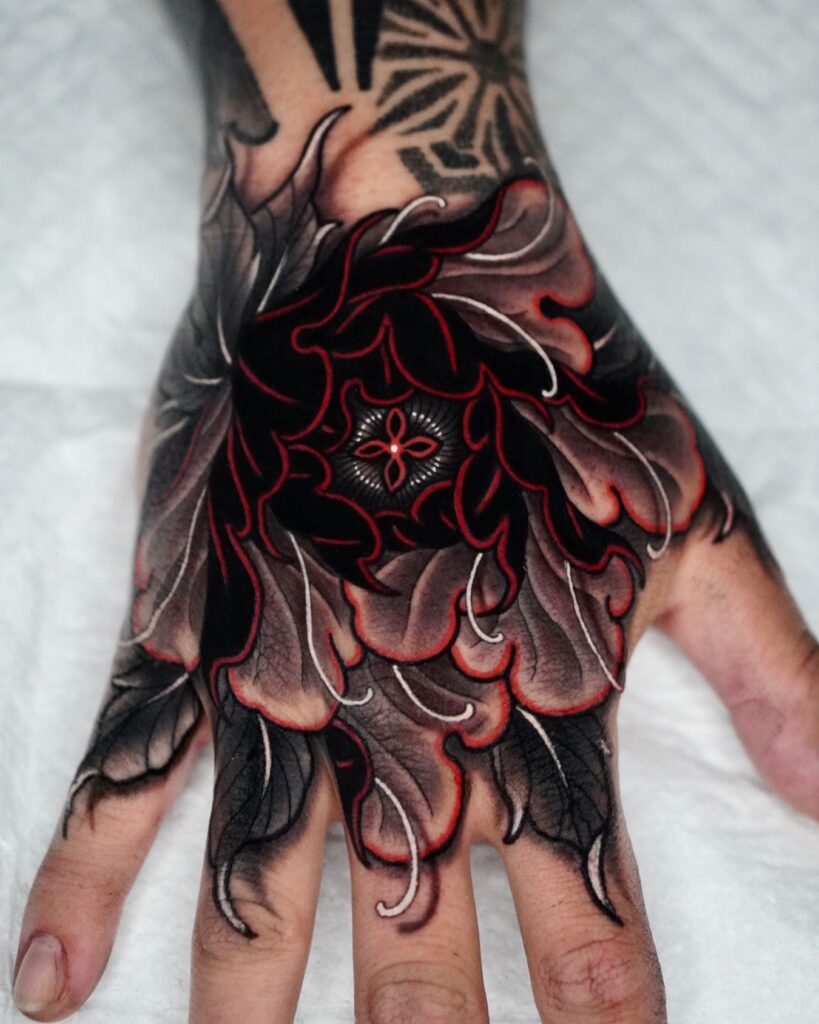
11. Demon (鬼, Oni)
The demon, or Oni, in Yakuza tattoos represents fearsome power, punishment, and the darker aspects of life. In Japanese folklore, Oni are supernatural beings that bring misfortune and enforce punishment on evildoers. For Yakuza members, a demon tattoo can symbolize their acknowledgment of the harshness and potential consequences of their criminal lifestyle. It also serves as a reminder of their readiness to face those consequences with strength and resolve. Oni tattoos are often fierce and intimidating, with sharp teeth and menacing expressions, emphasizing the wearer’s willingness to embrace their darker side. However, they can also represent protection from evil, as these fearsome creatures are sometimes seen as guardians against worse threats.
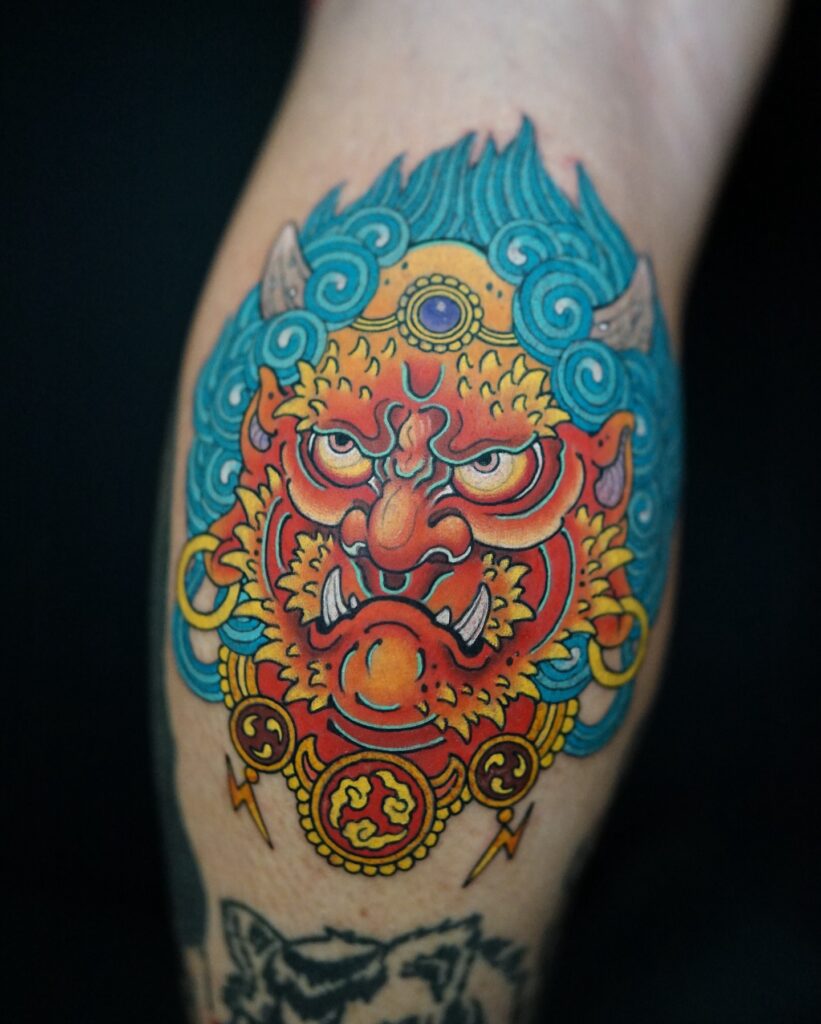
12. Geisha (芸者, Geisha)
The geisha tattoo represents beauty, grace, and the traditional feminine ideal in Japanese culture. For the Yakuza, a geisha tattoo can symbolize their connection to Japanese heritage, art, and refinement, juxtaposed against their otherwise brutal lifestyle. Geishas are trained in the arts of dance, music, and conversation, making them symbols of elegance and sophistication. A geisha tattoo may also reflect the wearer’s appreciation for beauty amidst the harsh realities of their life, serving as a reminder that grace and strength can coexist. Often depicted with delicate details like kimonos and traditional hair accessories, the geisha in a tattoo can also represent the wearer’s reverence for tradition and the more peaceful, cultured aspects of Japanese society.
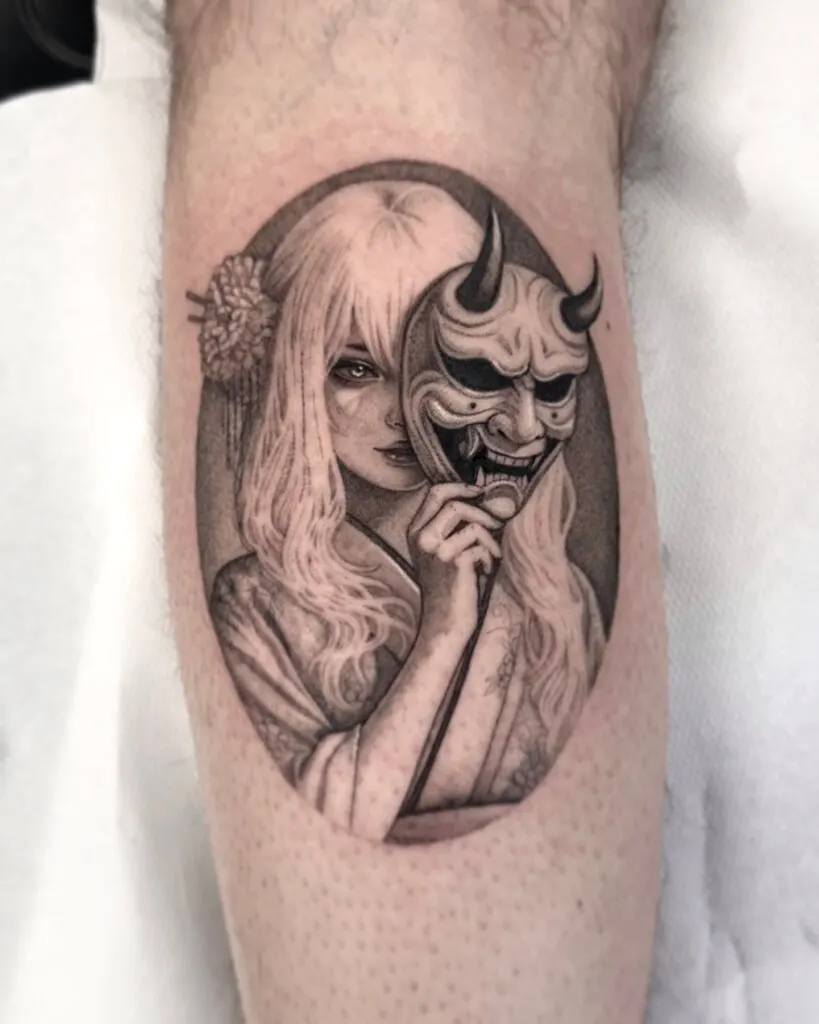
13. Fu Dog (獅子, Shishi)
Fu dogs, or Shishi, are guardian lions often placed outside temples to ward off evil spirits. In Yakuza tattoos, the Fu dog represents protection, courage, and loyalty. These mythical creatures symbolize strength and the ability to defend oneself and loved ones from harm. For the Yakuza, who often see themselves as protectors of their own communities, a Fu dog tattoo can signify their role as a guardian. The image of a fierce, vigilant Fu dog also reflects their readiness to confront danger head-on. The Fu dog is often depicted in powerful, dynamic poses with exaggerated features to emphasize its ferocity, making it a bold symbol of strength and protective instincts in Yakuza tattoo art.
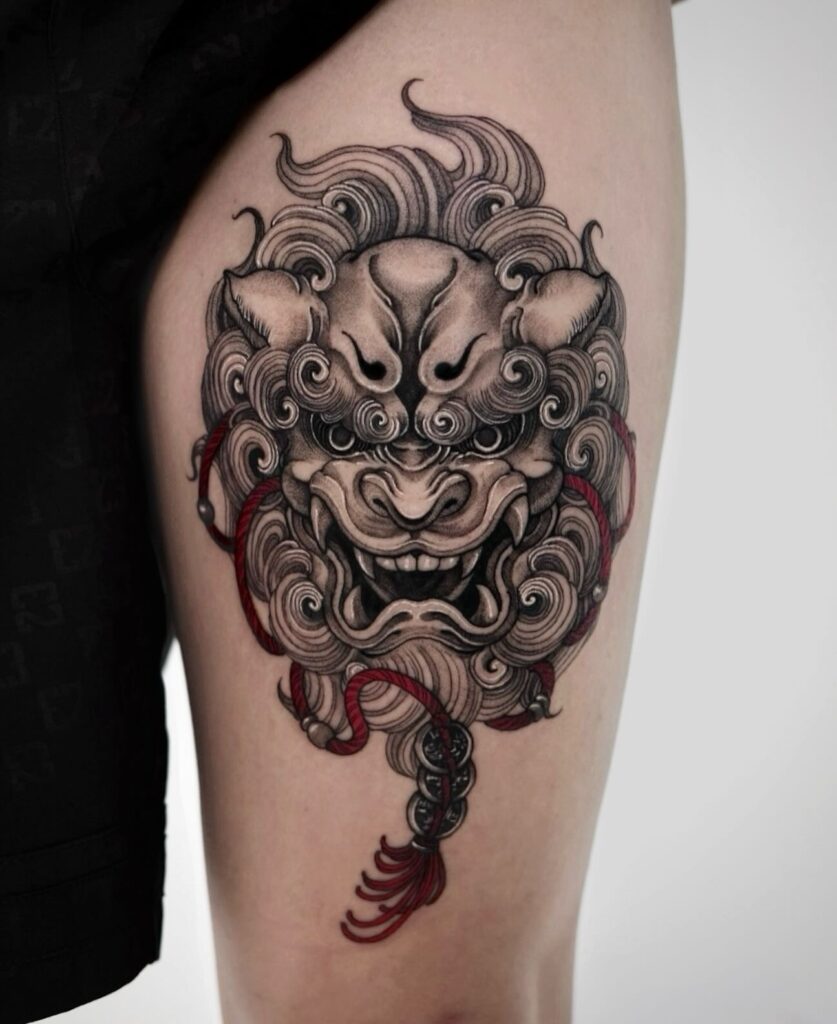
14. Skull (骸骨, Gaikotsu)
The skull is a universal symbol of death and mortality, but in Yakuza tattoos, it also represents the acceptance of life’s inevitable end. This tattoo serves as a reminder that death is always present in the Yakuza lifestyle, where risk and danger are part of daily existence. However, the skull is not solely a symbol of fear; it can also signify rebirth, transformation, and the shedding of old ways. For many Yakuza members, a skull tattoo symbolizes their fearlessness in the face of death and their acknowledgment of the transient nature of life. Often paired with other motifs like roses or snakes, the skull can take on deeper meanings of strength, resilience, and the cycle of life and death.
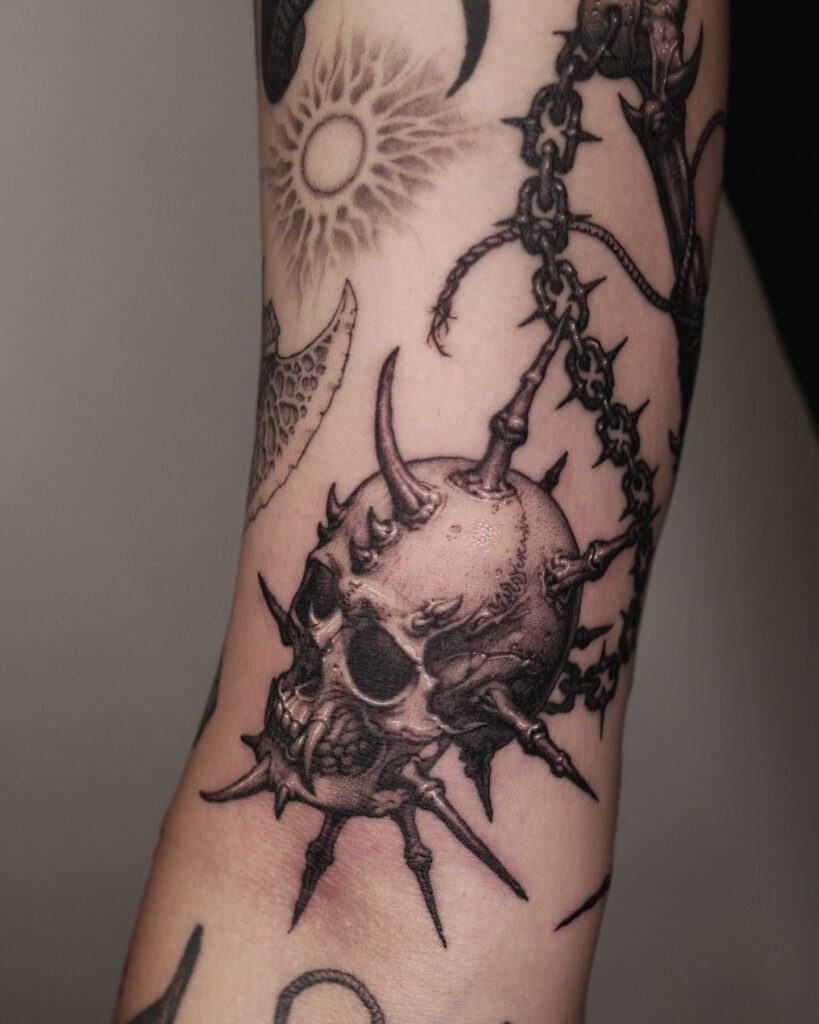
15. Wind and Water (風水, Fūsui)
The combination of wind and water in Yakuza tattoos represents harmony, balance, and the natural flow of life. These two elements are seen as complementary forces, with wind symbolizing change and freedom, while water represents adaptability and emotional depth. For the Yakuza, who often face turbulent situations, wind and water tattoos can symbolize their ability to remain balanced and resilient no matter the challenges they encounter. These tattoos often feature flowing lines and naturalistic elements to convey the fluidity of life. Wind and water are also associated with fortune and prosperity, emphasizing the Yakuza’s belief in adapting to life’s ever-changing circumstances while maintaining their core strength and composure.

16. Carp (鯉, Koi)
The carp tattoo is a symbol of success, ambition, and the ability to overcome obstacles. Similar to the koi fish, the carp is admired for its perseverance as it swims upstream, often through rough waters. In Yakuza culture, this tattoo represents the wearer’s determination to achieve their goals, no matter the difficulties they face. The carp is often linked to the idea of transforming into a dragon, which adds an additional layer of meaning—suggesting that through hard work and dedication, one can achieve greatness. The carp is typically depicted in bright, dynamic colors, swimming against a backdrop of water or waves, symbolizing the wearer’s struggle to succeed and their eventual triumph over adversity.
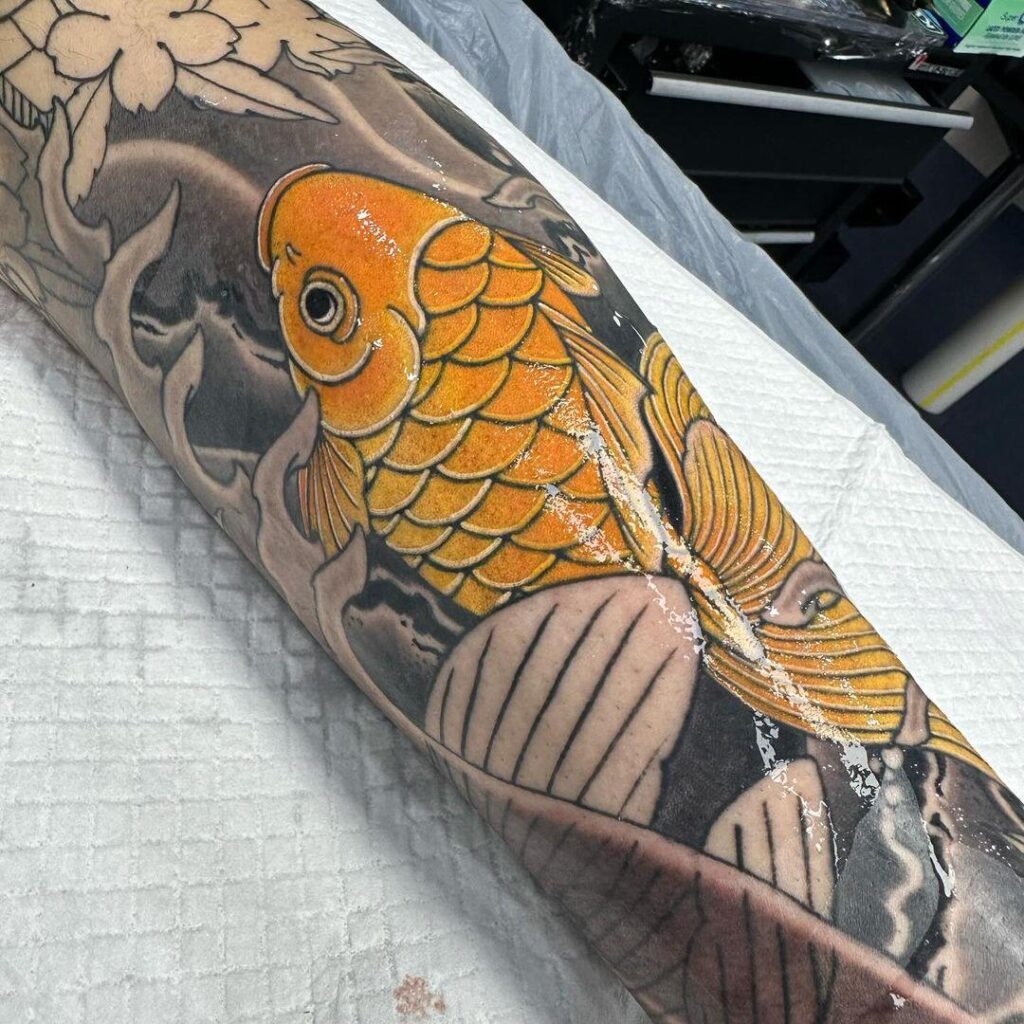
17. Cherry Blossom Wind (桜吹雪, Sakura Fubuki)
The cherry blossom wind tattoo, or Sakura Fubuki, represents the transient beauty of life and the inevitability of change. This motif features cherry blossom petals being carried away by the wind, symbolizing the passing of time and the fleeting nature of life’s moments. For the Yakuza, who live in a world of constant danger and uncertainty, this tattoo can serve as a reminder to appreciate life’s beauty, even in the face of hardship. The image of delicate petals drifting through the air contrasts with the harsh realities of the Yakuza lifestyle, making it a poignant symbol of the balance between life’s fragility and their resilience in the face of danger.
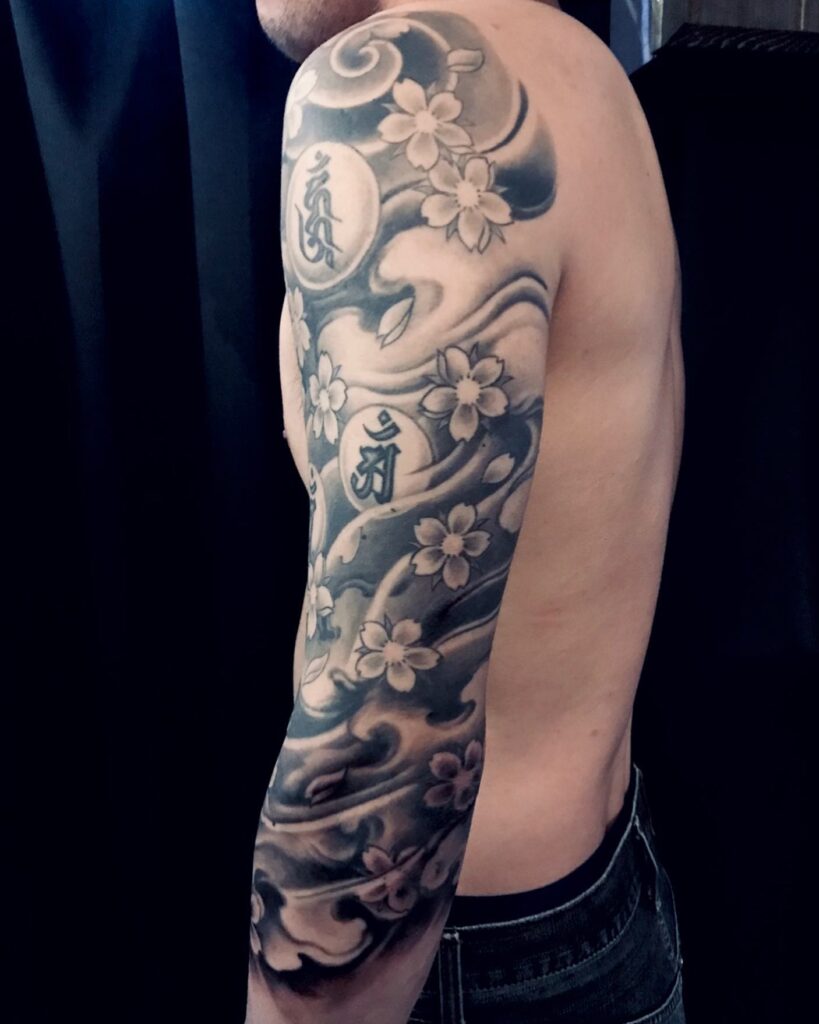
18. Spider (蜘蛛, Kumo)
The spider tattoo symbolizes patience, cunning, and danger. In Yakuza culture, the spider represents the ability to lay traps and wait for the right moment to strike, reflecting the strategic thinking required in their world. Spiders are known for their careful planning and precise actions, traits that are valued in the Yakuza hierarchy. This tattoo can also signify a sense of danger and unpredictability, as spiders are often feared for their venom and their ability to strike swiftly and silently. For the Yakuza, a spider tattoo may represent their own calculated approach to life, embodying both their patience in waiting for opportunities and their readiness to act decisively when the time comes.
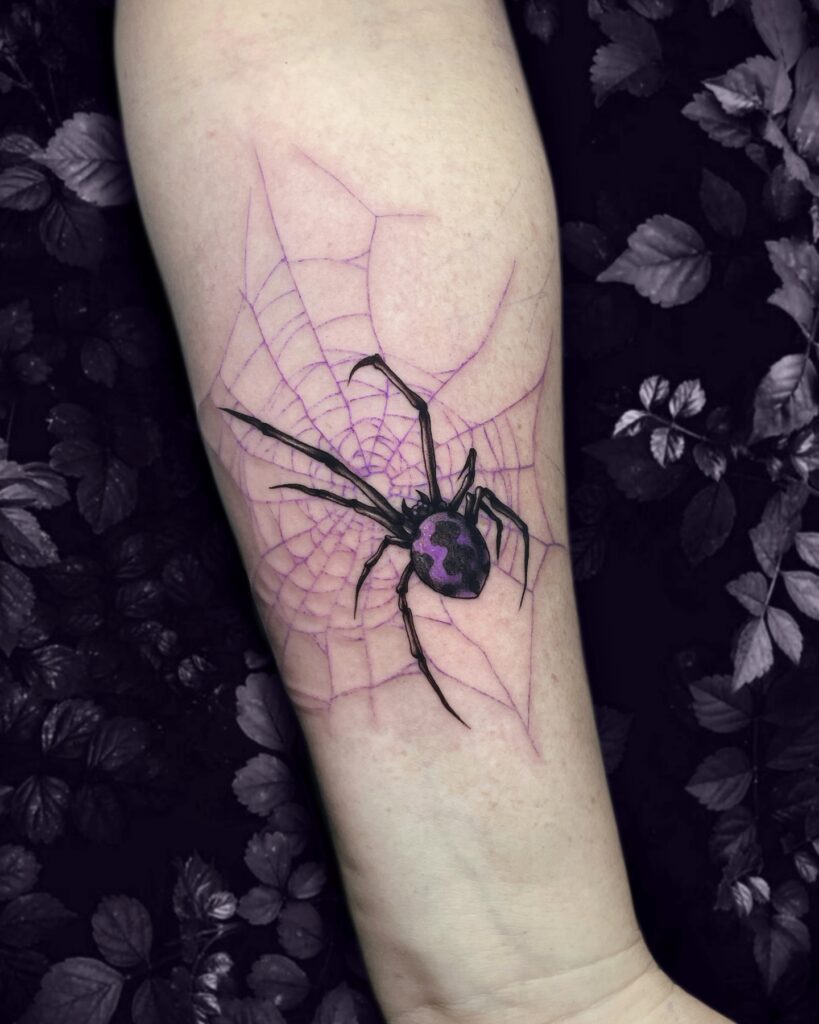
19. Waterfall (滝, Taki)
A waterfall tattoo symbolizes strength, endurance, and the continuous flow of life. In Yakuza tattoos, waterfalls often appear alongside koi fish or dragons, emphasizing the wearer’s perseverance in the face of adversity. Just as a waterfall flows relentlessly over obstacles, this tattoo represents the Yakuza member’s ability to keep moving forward despite challenges. Waterfalls are also seen as purifying forces in Japanese culture, symbolizing renewal and the constant passage of time. For Yakuza members, a waterfall tattoo can reflect their belief in resilience and their willingness to navigate life’s difficulties with unwavering determination. The powerful imagery of water crashing against rocks serves as a reminder of both inner and outer strength.

20. Buddha (仏, Butsu)
A Buddha tattoo represents inner peace, protection, and spiritual guidance. In Yakuza culture, the Buddha can serve as a symbol of morality and enlightenment, reflecting the wearer’s desire for balance between their life of crime and their personal code of conduct. The Buddha is often depicted in serene poses, radiating calm and wisdom, which contrasts with the harsh, often violent world of the Yakuza. This tattoo can symbolize the wearer’s search for inner peace amidst chaos and their respect for spiritual traditions. It also acts as a protective symbol, believed to guard the wearer from harm while reminding them to maintain a sense of morality and mindfulness in their actions.
